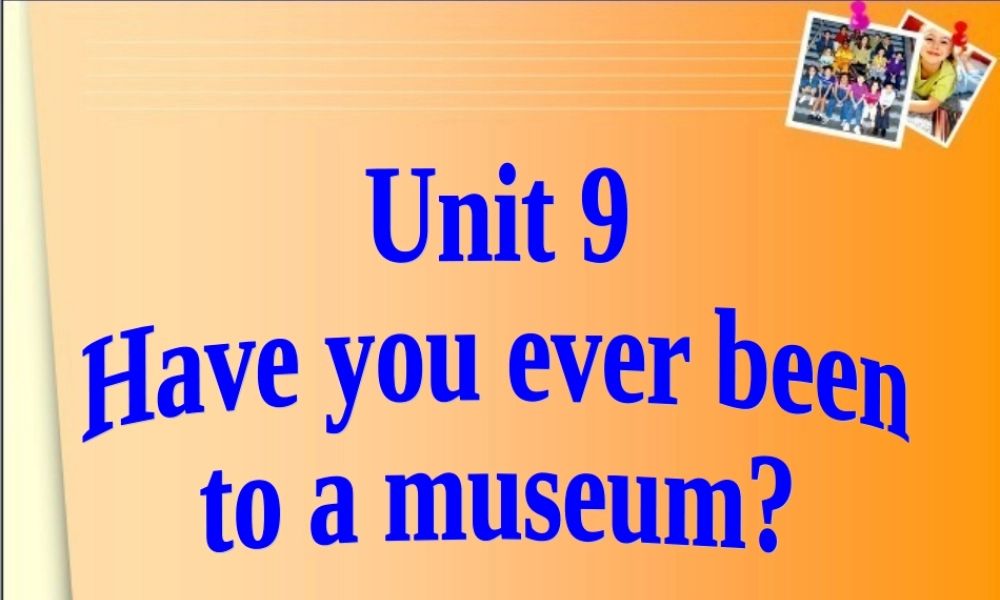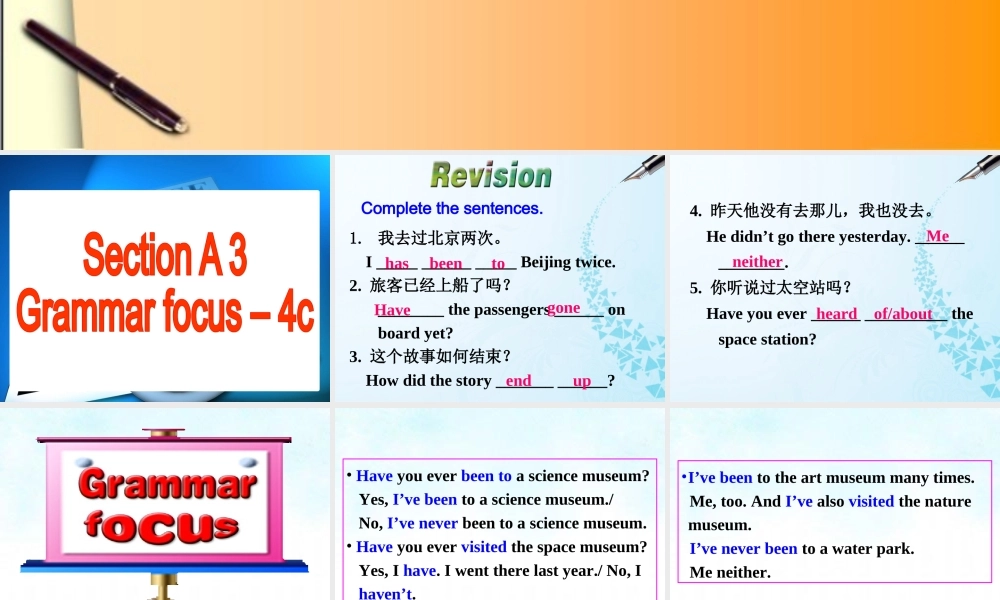1. 我去过北京两次。 I _____ ______ _____ Beijing twice.2. 旅客已经上船了吗? ________ the passengers ______ on board yet?3. 这个故事如何结束? How did the story _______ ______?has been toHaveComplete the sentences. end upgone4. 昨天他没有去那儿,我也没去。 He didn’t go there yesterday. ______ ________. 5. 你听说过太空站吗? Have you ever ______ __________ the space station? Me neitherheard of/about• Have you ever been to a science museum? Yes, I’ve been to a science museum./ No, I’ve never been to a science museum.• Have you ever visited the space museum? Yes, I have. I went there last year./ No, I haven’t.•I’ve been to the art museum many times. Me, too. And I’ve also visited the nature museum. I’ve never been to a water park. Me neither.肯定式否定式I/You/We/They have finished the work.He/She/It has finished the work.I/You/We/They have not finished the work.He/She/It has not finished the work.构成: have( 助动词 ) + p.p has( 第三人称单数助动词 ) + p.p 疑问式回答Have I/you finished the work?Has he/she finished the work?Yes, you/I have.No, you/I haven’t.Yes, he/she has.No, he/she hasn’t.have not 常缩略为 haven’t 。has not 常缩略为 hasn’t 。Have you had your lunch yet?Yes, I have. I have just had it. ( 现在我不饿了 )表示过去发生或已经完成的动作对现在造成的影响或结果。I have already taught him some English.John has never been to the space museum.My boy has just started junior high school.现在完成时常与时间副词already, never, ever, just, before, yet 等连用。ever 意为“曾经”,用于疑问句或否定句中,放在助动词与过去分词之间。e.g. Have you ever been to Hong Kong?你曾去过香港吗? I haven’t ever spoken to her. 我未曾和她说过话。 never 意为“从来没有”可与 before连用,多放在助动词与过去分词之间。 e.g. I have never travelled by p...




